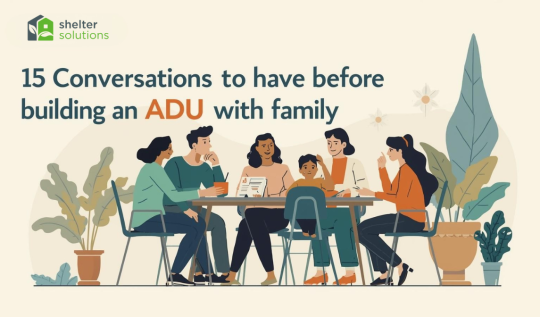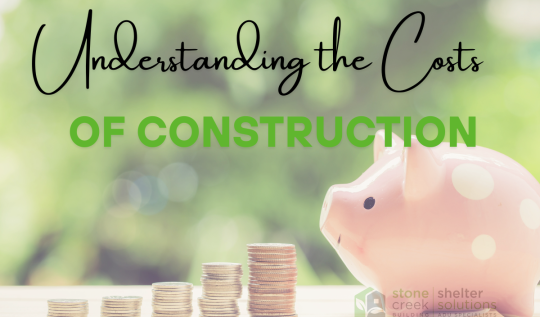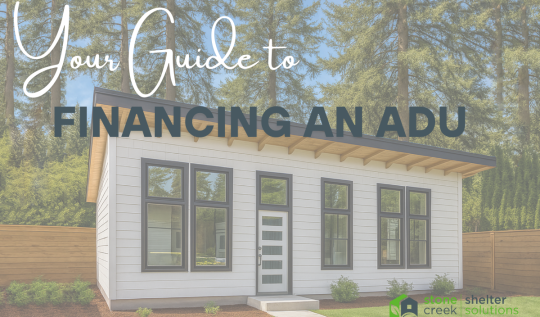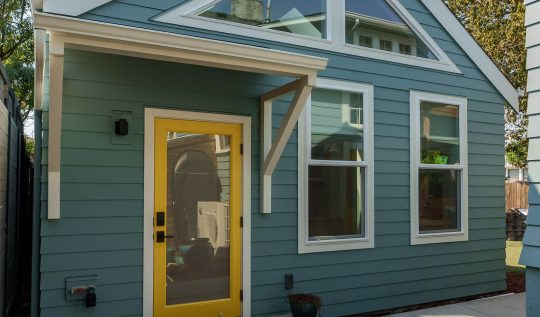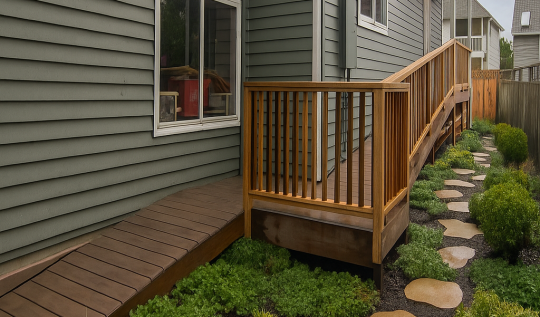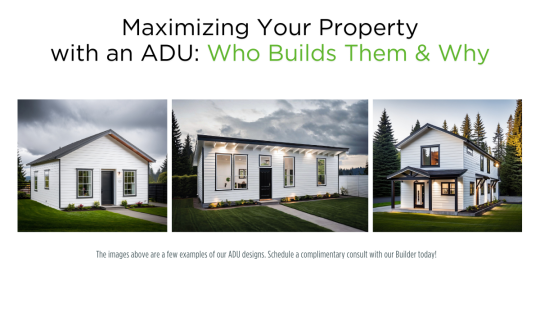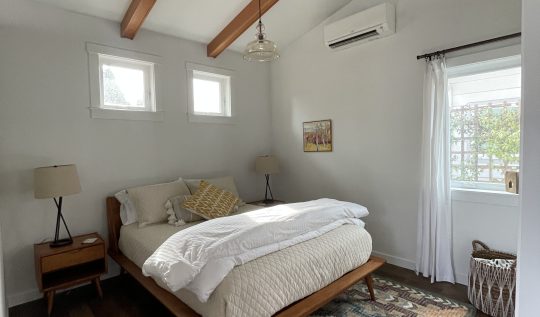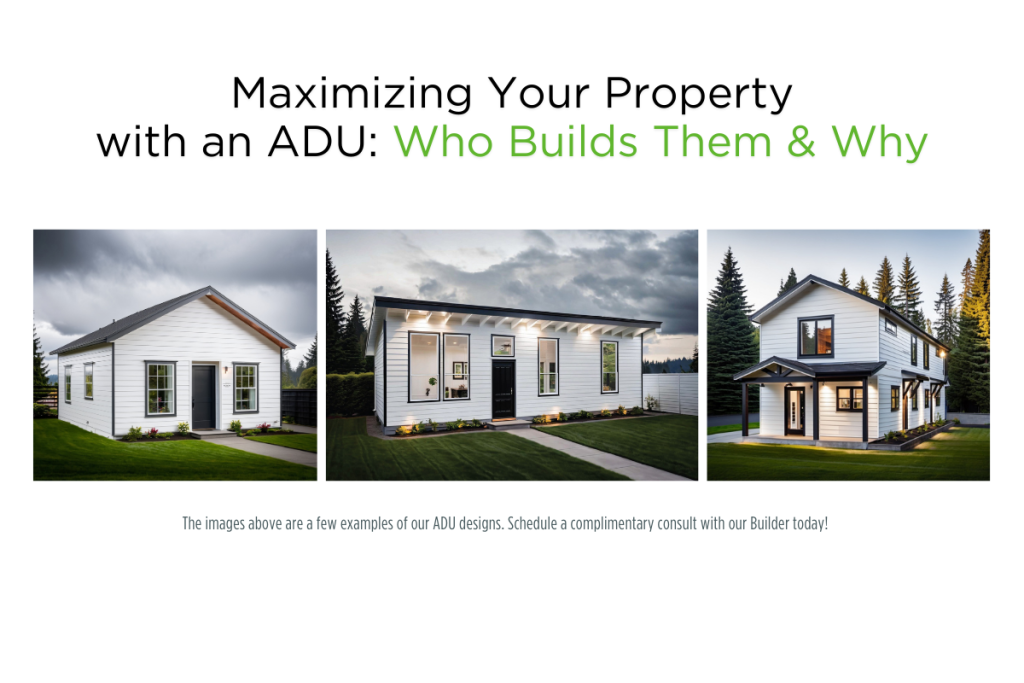
ADUs in various forms have been built and used for centuries and have been a part of urban landscape in the United States in some form for decades. These secondary housing units, which can be attached or detached from the primary residence, come in various forms such as basement apartments, garage conversions, or detached, stand-alone cottages.
But in the last 15 years, trends show a significant rise in their popularity on the West Coast. This surge can be attributed to many things, including changes in the marketplace & culture, as well as government policy.
The Oregon Legislature has made consistent efforts since 2018 to allow higher density development on the states “residential” lots which has introduced “ADU Building & Planning Codes” into the local codes of every city above the population of 2500. There have been other state developments including the following legislative changes:
SB 1051 (2018) – cities over 2500 must allow ADU’s
HB 2001 (2020) – All residential lots in Oregon to Allow ADU’s
HB 3395 (2023 – no off-street parking required
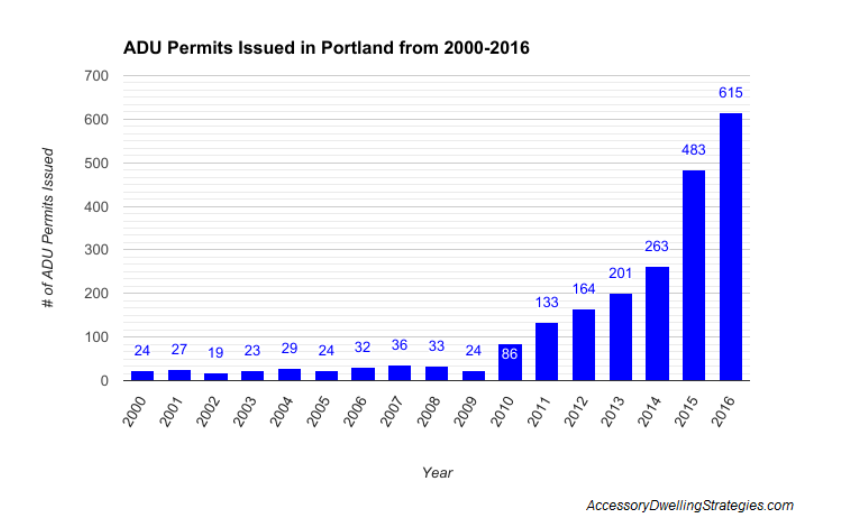
As you can see from the above graph, provided by AccessoryDwellingStrategies.com, the most dramatic shift in the Portland market began in 2010, when the City Council took steps to encourage development and expand the housing supply. By waiving System Development Charges (SDCs) assessed to ADU permits, they significantly reduced the costs of building in the City of Portland by as much as $24,000 in fees.
Aging In Place/ Multi-Generational Living is the Most Common Reason for ADU’s
Accessory Dwelling Units (ADUs) have become a sought-after option for homeowners seeking an aging-in-place solution for their parents, or when family desires to live in close proximity – creating a multi-generational lifestyle for their grandkids to thrive. Families can maintain close connections while ensuring privacy for each member.
Many of the ADU’s we build include aging-in-place features, such as single-level layouts (no stairs), low ADA thresholds, 3-foot-wide doors, and roll-in showers with grab bars. Most clients who choose to age in place are downsizing, so ample storage and upgraded cabinetry are key priorities. We also offer a range of design solutions that enhance natural light and make these smaller homes feel more spacious.
60% of the ADU’s we build are for multi-generational living.
Check out some beautiful photos from this recently completed Aging-in-Place, One-Level ADU: Maddox ADU – Shelter Solutions Portland’s Premier ADU Builder
ADU’s Provide Great Rental Income
One of the primary financial benefits of ADUs is the potential for rental income. Homeowners in Portland and Oregon City have capitalized on this opportunity, turning their ADUs into lucrative rental properties. For instance, a case study from Portland highlighted a homeowner who generated significant rental income by leasing their ADU on a long-term basis. This additional income stream not only helps in offsetting mortgage costs but also provides financial security.
ADUs also play a crucial role in diversifying income sources for homeowners. By renting out these units, homeowners can reduce their financial dependence on a single income source. It’s important to consider the tax implications associated with ADU rental income. While rental income is taxable, homeowners can benefit from various tax deductions related to property maintenance and depreciation, enhancing the overall financial appeal of ADUs.
This two-story ADU was built for the client to have a shop for the main home to use on the main level and a rental apartment upstairs.
Homeowners have several strategies to maximize rental income from their ADUs. Short-term rentals, such as those listed on vacation rental platforms like VRBO & Airbnb can offer higher returns during peak seasons. There are often rules to consider from the local city or county that should be looked into before building. As mentioned above in this article, the City of Portland will waive SDC’s for ADU’s if they are not being used as a short-term rental. They require the owner to sign a covenant to not short-term-rent their property for 10 years from receipt of their occupancy permit.
For more information about ADUs and how they can enhance your property value, reach out to Shelter Solutions today. Our team of experts is ready to assist you with your ADU needs, from planning and financing to construction and compliance.

